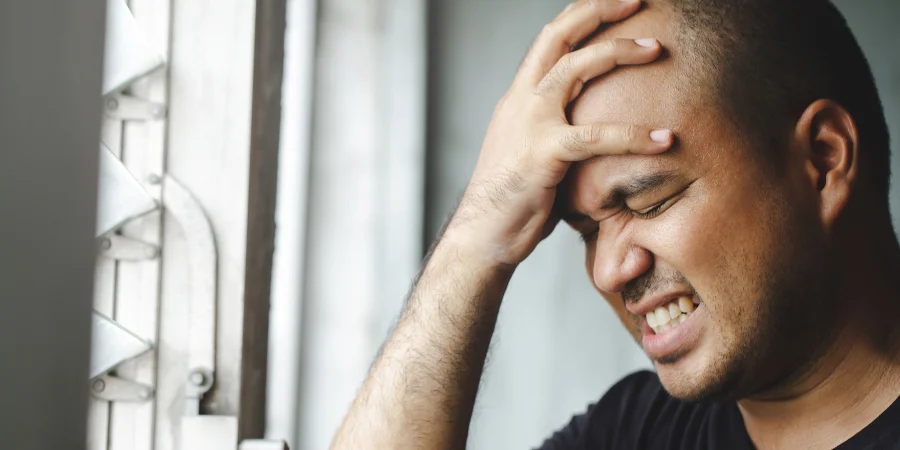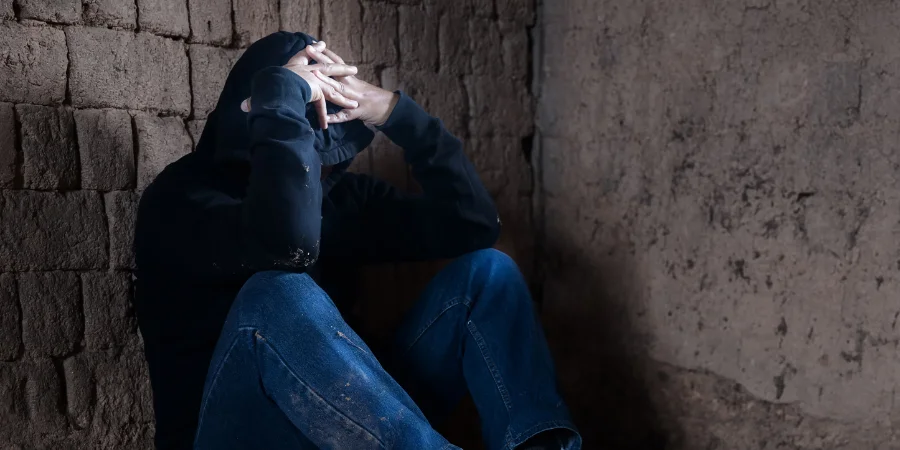
Written by:

Medically Reviewed by:
Last Updated:
March 5th, 2025
Benzodiazepine Detox and Withdrawal | Timeline and Treatment
Benzodiazepines are a class of prescription sedatives, also known as ‘anxiolytics’, used to treat anxiety, panic disorders and insomnia. While they are effective in treating these conditions, misuse can very quickly lead to dependence. If you or a loved one is struggling with benzodiazepine abuse, the first step in recovery will be a benzodiazepine drug detox. Many worry about what to expect during benzodiazepine detox, but our team at Primrose Lodge is here to guide you every step of the way.
What is Benzodiazepine detox?
If you have tried to reduce your dosage of benzodiazepines or quit taking them, you may have noticed some unpleasant side effects surfacing. This is known as benzodiazepine withdrawal and is caused when the body tries to readjust to functioning without the drug.
Benzodiazepines work by interacting with neurotransmitters in our brain, notably gamma-aminobutyric acid (GABA). GABA receptors are responsible for regulating our mood and anxiety levels. When we take Benzodiazepine, it increases the activity of GABA, which has a calming, sedative effect on the brain. The initial symptom of anxiety or panic is therefore suppressed, or in cases of insomnia, you will find it easier to fall asleep. As our brain becomes accustomed to the presence of benzodiazepines, ceasing use will result in withdrawal symptoms.
When we suddenly stop taking benzodiazepines, our brain is no longer being artificially stimulated by the drug and so GABA levels decrease. As a result, anxiety symptoms can return in full force, insomnia may become worse than before, and other withdrawal symptoms may arise. While this can be uncomfortable, drug detoxification is essential to restore your health.
Benzodiazepine withdrawal symptoms
As you detox from benzodiazepines, withdrawal symptoms can vary in severity depending on the individual, the frequency of consumption, and the length of abuse, however, you are likely to experience some or all of the following symptoms. These include:
- Anxiety
- Panic attacks
- Insomnia
- Decreased cognitive function
- Headaches
- Muscle pain and stiffness
- Nausea and vomiting
- Sweating
- Tremors
- Heart palpitations
- Hallucinations
- Psychosis
- Seizures
- Suicidal ideations
What is referred to as the ‘rebound effect’ is also very common amongst those undergoing benzodiazepine detox. Many will suffer from an abrupt increase of the initial symptom they were trying to treat with benzodiazepines, for example, anxiety. These symptoms may come back at the same level or worse than previously experienced.
Benzodiazepine detox timeline
The benzodiazepine detox timeline can also vary depending on the individual and the severity of abuse. You should also consider the type of benzodiazepine being used, as each one will have a different half-life that affects the amount of time it takes for the substance to leave the bloodstream. Having said that, there are some general patterns that tend to be followed.
Which Benzodiazepines require detox?
Benzodiazepines are highly addictive, with both physical and psychological dependency taking hold of the user in a matter of weeks with regular use. Some common benzodiazepines include Ativan, Klonopin, Librium, Valium, and Xanax. Withdrawal symptoms are likely to be experienced with frequent use of these drugs.
What can I expect from Benzodiazepine detox?
If you have decided to detox from benzodiazepines at our treatment centre, you may be wondering what to expect. Over the phone and upon arrival, you will be assessed by our team of medical professionals. They will determine the best course of action to take during your treatment programme.
You will be closely monitored throughout the detox process in order to ensure your safety and comfort. Our staff will be on-hand to support you through any difficult withdrawal symptoms and assist in making them more manageable. They will also provide you with information and guidance on how to cope with any symptoms that may arise.
Detoxing from benzodiazepines can, unfortunately, be a difficult and uncomfortable process, but under medical supervision, it is safe and effective.
What are the benefits of Benzodiazepine detox?
Breaking free from the chains of benzodiazepines can be an incredibly liberating experience. Not only will you no longer have to worry about the negative impact the drug is having on your life, but you will also be able to start making positive changes and enjoying yourself again. The benefits of benzodiazepine detox are numerous, and include:
- A life free from drug abuse
- Improved health and wellbeing
- Opportunities to rebuild relationships
- Ability to focus on a career
- New-found interests and hobbies
Detoxing from Benzodiazepines under medical supervision can also help to reduce the severity and duration of withdrawal symptoms, and it can provide you with the support and resources you need to successfully recover from addiction. Taking part in a treatment plan can give you the chance to rebuild your life in a healthy and positive way, and learn invaluable coping skills for preventing relapse.
Can I detox from Benzodiazepines at home?
Detoxing from benzodiazepine at home, without the guidance of a doctor, is not recommended. Benzodiazepine detox can be extremely difficult and uncomfortable, and in some cases, even dangerous.
During drug detoxification, the symptoms of withdrawal can be severe and unpredictable, and if you are not under the care of a medical professional, you may not have access to the necessary support and resources.
There is also a much higher risk of relapse when detoxing from benzodiazepines at home, as you may not be able to cope with acute withdrawal symptoms and could turn back to the drug in order to relieve them.
Is detox enough to cure my Benzodiazepine addiction?
Sadly, detox is not enough to cure your benzodiazepine addiction, and is only the first step in your recovery. It is, however, a crucial turning point that can lay a strong foundation for your onward sobriety. After completing benzodiazepine detox, you will need to continue on to a rehabilitation programme in order to address the underlying causes of your drug use and to learn new coping skills for dealing with life without benzodiazepines.
If you are committed to recovery and ready to make a change, you can achieve a life free from benzodiazepines. All you have to do is take that first step.
Next steps
While benzodiazepine detox can be a difficult and daunting process, it is an important first step on the road to recovery. With the help of our friendly and knowledgeable team, you won’t have to suffer alone – we can help you to tackle the drug detox phase safely, keeping your wellbeing as our number one priority.
If you or a loved one is struggling with benzodiazepine abuse, know that you are not alone. Thankfully there is help available, and there is hope for recovery. If you would like to talk more about benzodiazepine detox or discuss your next steps, don’t hesitate to give us a call.





